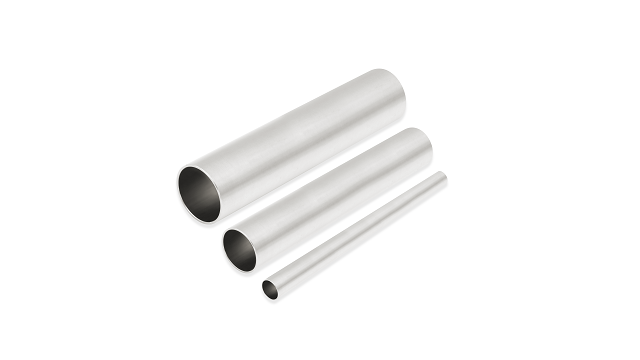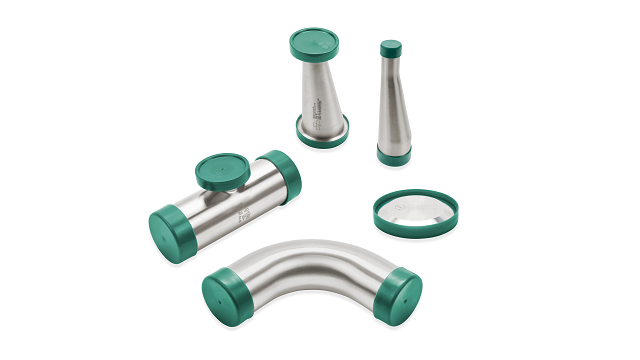How to choose quality tubes and fittings for pharmaceutical processes (pt 1): Material composition
In pharmaceutical production, not all stainless-steel tubes are the same – here’s why…
DATE 2024-05-06In the intricate network of stainless-steel pumps, valves, tanks and vessels that make up pharmaceutical or biotech plant, it is easy to overlook the unsung heroes of the process: the tubes and fittings.
Metres upon metres of consistently high-quality stainless-steel tubing are needed for utility piping, piping for clean-in-place, piping for product, piping for waste and so on; and the importance of this product area is often forgotten.
On visual inspection, all stainless-steel tubes look the same; but they are not!
Deficient welding and poor interior tube surfaces are the primary cause of corrosion/contamination problems in pharma/biotech plants. When you take into account that 90% of the contact surface with the product fluid occurs within the tubes and fittings, it is crucial that these components are manufactured to facilitate easy and consistently high-quality welding to ensure trouble-free production.
Steel composition is key
At first glance, a tube may seem like a very simple component. However, it requires a sophisticated and meticulous process to maintain superior quality throughout production of tubes.
Welded tubes make up 95% of the tubes used in pharmaceutical applications, and consistency in the diameter, wall thickness, interior tube surface and weld joints are critical.
However, these significant characteristics cannot be seen with the naked eye. An in-depth knowledge of the materials and manufacturing processes is needed to understand the factors that make Alfa Laval UltraPure tubes and fittings stand out in the market.
The process begins with the composition of the steel, which varies according to the international standard it has been manufactured to comply with.
Take the analogy of a rubber band that can be stretched to various lengths. The same goes for material standards, which have various grades, tolerances, and manufacturing procedures depending on the applications and markets for which they are destined and the regulations with which they must conform.
Strict regulatory standards: ASME BPE
Tubes & fittings in the Alfa Laval UltraPure product range are manufactured from 316L stainless steel, which conforms with American standard ASME BPE and therefore makes the grade for use in the biotech, pharmaceutical and personal care industries. Not all 316L stainless steel conforms to this standard though ; for example, 316L steel alloys can be made to ASME BPE or ASTM A 270 standards, among others. Both these alloys have UNS designation S31603, meaning that they are low-carbon, robust and high-temperature tensile with creep and stress-rupture strengths, outstanding formability and weldability. However, unlike ASME BPE, ASTM A 270 is only suitable for sanitary applications.
Alfa Laval UltraPure tubes and fittings are made from stainless steel that meets all the regulations for pharmaceutical and biotech processes, and the high focus on consistency in manufacturing ensures optimal weldability, with the weld ends matching perfectly and the chemical composition guaranteeing maximum compatibility and integrity in all the weld joints within complex tube networks.
The role of sulphur in ASME BPE stainless steel
The level of sulphur in the chemical composition of ASME BPE stainless steel is crucial. Sulphur is an interesting ingredient because it is both an impurity in the steel and essential to an optimal weld. ASME BPE specifies that we need to have a sulphur content between 0.005 and 0.017% because this is the gap in which we consider the weldability is best and the amount of impurity is at an acceptable level to prevent corrosion later on down the line.
Sulphur affects the weldability of the steel and with the level of sulphur present in ASME BPE, we can achieve deeper and more consistent weld penetration. Also, by maintaining a consistent sulphur content, automatic welding machines can be easily programmed to work with these tubes, which ultimately means the installation and extension of UltraPure piping networks is always an optimized and streamlined process.
By guaranteeing consistency and high quality in the manufacturing of Alfa Laval UltraPure tubes & fittings, we have a win-win situation. You, as a customer can be confident that all tubes & fittings are made to the high standards required for pharmaceutical and biotech production processes, while also reaping the benefits of perfectly matching weld ends and continuous high-quality welds that are always consistent from one batch to the next.
Chemical composition and optimum weldability are just two of the superior qualities of Alfa Laval UltraPure tubes. In the next blog article, we will focus more closely on the internal surface of the tubes to explore how the finishing of the interior surface plays a vital role in securing consistency and high yields in pharmaceutical and biotech production.
Maybe you also find this relevant?
How to choose quality tubes and fittings for pharmaceutical processes - Surface finish (pt 2).



